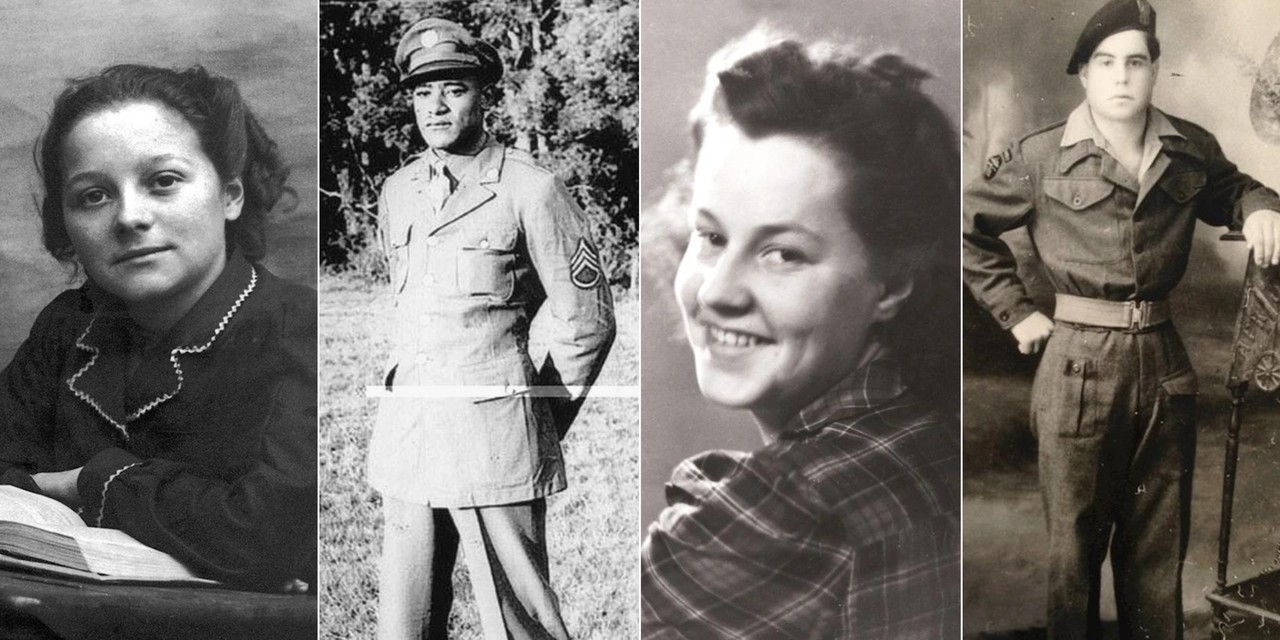Normandy in France was one of the most important theatres of the Second World War. After landing on its beaches on D-Day, the Allies initiated the liberation of Western Europe with the Battle of Normandy. This logistical feat, fought by over a dozen nations against German forces between June and August 1944, changed the course of European history. The Liberation of France irreversibly and, at times, dramatically changed the lives of individuals who experienced it. This article recounts five lesser-known stories of people who lived during these times. From the memories of young civilian survivors to the experiences of African American soldiers, these stories give a more personal account of the Second World War in France’s northern region.
Arlette Varin-Baudin: Story of a Survivor
The story of Arlette Varin reminds us of the human cost of the Allied invasion and the toll this operation took on civilians. She was only ten years old, when the assault began, living near Lisieux's railway station with her family. On June 6, 1944, her city was bombed as part of Operation Overlord (Battle of Normandy). Arlette survived the bombing; unfortunately, her brother and grandmother were killed, and her father was severely injured. After the war, Arlette finished her studies and became a secretary in Caen. She also remained active in the local community raising awareness of the civilian victims of the Allied landings.
Chantal Rivière-Nobécourt: A Story of a Red Cross Volunteer
Chantal Rivière-Nobécourt's story highlights the resilience and compassion of young volunteers. At age 19, Chantal volunteered for the Red Cross in Caen during the summer of 1944. She dedicated herself to helping refugees and organised a centre for children in the Malherbe High School. Rivière-Nobécourt worked tirelessly, even participating in the evacuation of refugees to Bayeux during the Canadian attacks. She continued her humanitarian efforts after the war, helping distribute clothes with National Mutual Aid during the winter of 1944-1945. She also remained active in her community, eventually becoming the deputy mayor for culture in Caen from 1977 to 1989.
Ruben Rivers: Story of an African American Soldier
Ruben Rivers was an African American and Cherokee sergeant belonging to the 761st Tank Battalion, also called the Black Panthers. His unit arrived in Omaha Beach in October 1944. At 26 years old, he exhibited exceptional bravery, taking part in the hardest battles. He died only a month later in an attack on his tank while supporting the retreat of his comrades. Despite his impressive record, Rivers did not receive the recognition he deserved until 1997 when President Bill Clinton awarded his family the Medal of Honor. His story is symbolic for the racism and racial segregation within the U.S. Armed Forces and the American society during that time.
René Rossey: Story of a Young Resistance Fighter
Originally from Tunisia, René Rossey enlisted at 17 years old, lying about his age to join the Free French Forces, the armed part of the Free France government-in-exile under Charles de Gaulle. On June 6, 1944, Rossey landed on Sword Beach during the Allied invasion of Normandy. Despite fierce fighting, he survived and later participated in the Liberation of the Netherlands. After the war, he moved to Tunisia and then settled in France in 1956. In 2014, he was made an Officer of the French Légion d’Honneur. Today, his story remains an example of the determination of a young person willing to fight for freedom despite external constraints.
Frederick William (Fred) Perfect: The Story of a War Correspondent
Fred Perfect's account offers a different view on the conflict, as one of the many journalists who joined the Allied troops to report their actions to their countries. During the D-Day invasion, he was on the HMS Largs, one of four Combined Operations Headquarters ships maintaining communication between the different air, marine and land units. As the Daily Telegraph’s special Naval War Correspondent, Perfect reported from the front lines, offering a first-person account of the campaign. His reports, now preserved in the D-Day Story Museum’s archive in Portsmouth, UK, provide an invaluable perspective on the events as they unfolded, from the naval bombardments to the progress of Allied troops and the experiences of French civilians. What is remarkable is the fact that he did not shy away from covering the stories of the civilian casualties of the Allied landing, providing his readers with an authentic and transparent approach to the colossal events.
These personal stories about war experiences in Normandy highlight the human side of war, reminding us that the history of the Second World War extends beyond events to encompass many faces and names. Individual experiences of people like Arlette Varin, Ruben Rivers, Chantal Rivière-Nobécourt, René Rossey, and Fred Perfect offer unique, first-person perspectives on the Battle of Normandy and the Liberation of France. Their stories underscore the profound impact of conflict on countless lives and the tenacity of those who lived through it.
